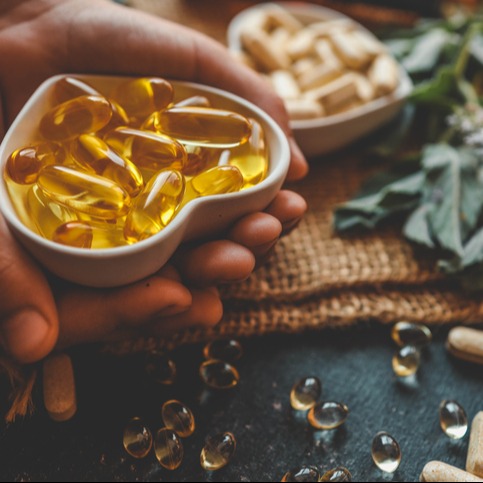
An anti-aging diet is more than just a trend—it's a lifestyle that emphasizes the power of whole, nutrient-dense foods to slow the effects of aging and promote long-term health. At its core, this diet prioritizes foods rich in essential vitamins, minerals, antioxidants, and healthy fats, all of which play a pivotal role in enhancing skin health, boosting energy levels, and supporting overall vitality. By incorporating a variety of colorful fruits, vegetables, and nutrient-rich sources of healthy fats, such as avocados, nuts, and fatty fish, individuals may notice improvements in skin elasticity, reduced wrinkles, and a more youthful complexion. Furthermore, the anti-aging benefits of such foods extend far beyond skin deep, supporting heart health, cognitive function, and even strengthening the immune system. However, adopting an anti-aging diet involves more than simply choosing the right foods. Achieving optimal results requires an understanding of the delicate balance between nutrients—such as protein for collagen production, healthy fats for skin hydration, and antioxidants for protection against free radical damage. Additionally, incorporating lifestyle factors such as regular physical activity, stress management, and adequate hydration plays a critical role in maximizing the anti-aging effects. Together, these elements form a holistic approach to aging gracefully, helping individuals feel more vibrant and energetic while maintaining a youthful appearance well into their later years..
Key Takeaways
Emphasize whole foods such as fruits, vegetables, and whole grains to provide essential nutrients and antioxidants for skin health.
Include healthy fats, like avocados and fatty fish, to enhance skin hydration and support the skin barrier.
Avoid unhealthy fats, added sugars, and processed foods to protect collagen and reduce inflammation associated with aging.
Incorporate colorful fruits and vegetables rich in antioxidants to promote a vibrant complexion and combat free radical damage.
Maintain regular hydration and ensure adequate sleep to support skin elasticity and promote overall cellular health.
The Importance of Whole Foods in an Anti-Aging Diet
Although many factors influence the aging process, the importance of whole foods in an anti-aging diet cannot be overstated. Whole foods, including fruits, vegetables, whole grains, and legumes, are rich in essential nutrients and antioxidants that promote skin health and help combat the visible signs of aging. Diets that prioritize whole foods are associated with lower levels of inflammation, reducing the risk of chronic diseases related to aging, such as heart disease and diabetes. The variety of vitamins, minerals, and phytochemicals in these foods supports collagen production and skin elasticity, while their anti-inflammatory properties help protect against oxidative damage. Ultimately, a diet rich in colorful whole foods promotes a youthful appearance and supports longevity, making it a vital component of healthy aging.
Key Nutrients for Youthful Skin and Cellular Health
Whole foods play a significant role in promoting youthful skin and supporting cellular health through their rich array of nutrients. Key nutrients found in these foods contribute to skin vitality and overall well-being.
Antioxidants from colorful fruits and vegetables protect against free radical damage, enhancing skin texture and elasticity.
Omega-3 fatty acids from sources like fatty fish and walnuts support skin barrier function while reducing inflammation.
Vitamin C is crucial for collagen production, maintaining skin firmness and elasticity, while also offering protection against oxidative stress.
Incorporating a variety of nutrient-dense foods ensures a broad intake of these essential nutrients, fostering cellular health and promoting a vibrant, youthful complexion.
Foods to Avoid for Healthier Aging
To achieve healthier aging, it is essential to be mindful of dietary choices that can hinder well-being. Foods high in unhealthy fats, such as fried and processed items, should be avoided, as they can damage collagen and accelerate skin aging through advanced glycation end-products (AGEs). Limiting added sugars and refined carbohydrates is crucial, as these can lead to blood sugar spikes and contribute to inflammation, a significant factor in aging. Sugary beverages also pose risks, as they are linked to obesity and chronic diseases that threaten longevity. Additionally, high-sodium processed foods can negatively affect skin elasticity, while red and processed meats are associated with increased mortality rates. Making informed dietary choices can significantly impact overall health and aging.
Meal Planning for Anti-Aging Benefits
Effective meal planning for anti-aging benefits requires a focus on incorporating a variety of nutrient-dense foods that promote overall health and skin vitality. A well-structured meal plan should emphasize:
Whole grains and legumes for fiber that stabilizes blood sugar and reduces glycation, helping to protect collagen integrity.
Healthy fats from sources like avocados and fatty fish, which enhance skin hydration and elasticity while providing anti-inflammatory benefits.
A colorful array of fruits and vegetables, rich in antioxidants, to support skin health and combat the aging process.
Additionally, adequate protein intake—particularly from plant-based sources—is essential for collagen synthesis. Regular hydration, paired with these nutrient-rich foods, can significantly contribute to a youthful appearance and overall well-being.
Lifestyle Factors That Complement Your Diet
While a nutrient-rich diet plays a vital role in promoting healthy aging, lifestyle factors significantly enhance these dietary benefits. Regular physical activity improves circulation, supporting healthy skin and vitality. Adequate sleep is essential for skin regeneration, allowing the body to repair itself overnight. Stress management techniques help reduce inflammation, which is closely linked to aging. Additionally, avoiding smoking is crucial, as it accelerates skin aging. Staying hydrated is equally important, as it helps maintain skin elasticity and moisture.
Lifestyle Factors for Healthy Aging:
Lifestyle Factor | Benefits | Tips |
Regular Physical Activity | Improves circulation and supports skin health | Aim for at least 30 minutes of moderate activity daily |
Adequate Sleep | Promotes skin regeneration and overall recovery | Prioritize 7–9 hours of quality sleep per night |
Stress Management | Reduces inflammation and supports emotional well-being | Practice mindfulness, deep breathing, or yoga |
Hydration | Maintains skin elasticity and hydration | Drink at least 8 glasses (about 2 liters) of water per day |
Avoid Smoking | Prevents premature skin aging and supports overall health | Seek support programs or cessation aids if needed |
Frequently Asked Questions
What is the Best Anti-Aging Diet?
Research suggests that individuals following a Mediterranean-style diet have a 20% lower risk of age-related diseases. Rich in fruits, vegetables, whole grains, and healthy fats, this diet supports longevity and overall well-being, making it one of the most effective approaches to healthy aging.
What Food Is Most Anti-Aging?
Some of the most anti-aging foods include those high in antioxidants—such as berries and dark chocolate—along with healthy fats found in avocados and fatty fish. These nutrient-dense options promote skin health and support longevity by reducing oxidative stress and inflammation.
What Diet Makes You Look Younger?
Could the secret to a youthful appearance lie on your plate? A diet rich in antioxidants, healthy fats, and essential vitamins not only nourishes the body but also enhances skin vitality, promoting a more youthful and radiant look.
What is the best Anti-Aging Fruit?
When it comes to anti-aging benefits, fruits like berries, avocados, and citrus fruits stand out. Packed with antioxidants, vitamins, and healthy fats, these fruits help protect skin cells, support collagen production, and contribute to a more youthful appearance.
Rely on PlanetDrugsDirect.com to Buy Online Prescription Drugs
As a trusted prescription referral service, we offer important benefits whenever you order online. Each of our partner pharmacies and/or government-approved dispensaries is committed to providing the best experience possible of any online prescription referral service on the internet. We offer:
Low prices
Quick turn-around times
Generic and brand-name medications
Unparalleled customer service
Sources
Li Y, Tian X, Luo J, Bao T, Wang S, Wu X. Molecular mechanisms of aging and anti-aging strategies. Cell Commun Signal. 2024 May 24;22(1):285. doi: 10.1186/s12964-024-01663-1. PMID: 38790068; PMCID: PMC11118732.
Cao C, Xiao Z, Wu Y, Ge C. Diet and Skin Aging-From the Perspective of Food Nutrition. Nutrients. 2020 Mar 24;12(3):870. doi: 10.3390/nu12030870. PMID: 32213934; PMCID: PMC7146365.
Stojić V, Štrbac T, Stanimirović A. New anti-aging strategies: a narrative review. Acta Dermatovenerol Alp Pannonica Adriat. 2023 Dec;32(4):159-164. PMID: 38126098.
Andreo-López MC, Contreras-Bolívar V, Muñoz-Torres M, García-Fontana B, García-Fontana C. Influence of the Mediterranean Diet on Healthy Aging. Int J Mol Sci. 2023 Feb 24;24(5):4491. doi: 10.3390/ijms24054491. PMID: 36901921; PMCID: PMC10003249.
Ros M, Carrascosa JM. Current nutritional and pharmacological anti-aging interventions. Biochim Biophys Acta Mol Basis Dis. 2020 Mar 1;1866(3):165612. doi: 10.1016/j.bbadis.2019.165612. Epub 2019 Dec 6. PMID: 31816437.
Duan H, Pan J, Guo M, Li J, Yu L, Fan L. Dietary strategies with anti-aging potential: Dietary patterns and supplements. Food Res Int. 2022 Aug;158:111501. doi: 10.1016/j.foodres.2022.111501. Epub 2022 Jun 13. PMID: 35840210.
 Medically reviewed by
Medically reviewed by 





